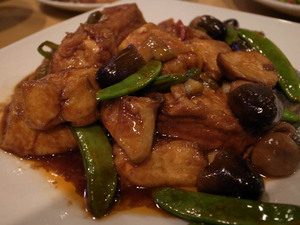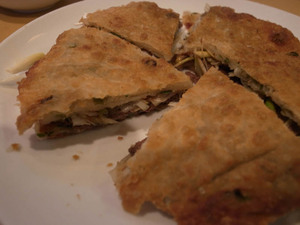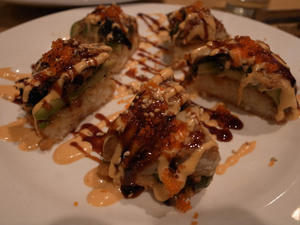
Szu-Hui Lin
12/10/10
The restaurant business is a competitive industry. Half of the new restaurants that opened from 1996 to 1999 closed in their first three years according to an Ohio State University study. For family-owned Chinese restaurants, their survival or demise often depends on the willingness of the second generation to take over the business.
"The average life of a restaurant is six to eight years, and only five percent of restaurants can survive over 20 years," said Wesley Chen, the owner of the Lotus Blossom restaurant.
Mark Yu, who used to own five Chinese restaurants in Boston, explained that first-generation Chinese-Americans didn't have very many chances to be educated. As a result, they could only work in restaurants, and they worked really hard to give their children good education. When their children graduate from school to become doctors, lawyers or computer engineers, they are not willing to go back and run the restaurants. "If the next generation works in the restaurant, they will be caged in the store and it will be hard to find a husband or a wife because the work days are too long and they don't have their lives," Yu said.

The long hours and heavy work load are the most common reasons that second-generation Chinese-Americans forego working in family restaurants. "In order to run the restaurant, the owner has to know everything from cooking to managing. Most young people are not willing to learn step by step," said David Wong, the owner of the Empire Garden restaurant. Wong has four children, and none of them work in the restaurant. "I am proud of the achievements that my children made in different fields, and I will run the restaurant as long as I can," he said.
Wang, the owner of 101 Bakery, mentioned that there are fewer family-owned Chinese restaurants in Boston these days than a decade or so ago. If the next generation doesn't take over the business, often the family-owned restaurant will be closed or sold to investors. "In Chinatown, a single restaurant might be owned by different people, and they might not work in the restaurants," Wang said.

For example, Lotus Blossom, Lotus Flower, Water Lily and Changsho are Chen family-managed traditional Chinese restaurants in suburban Boston. The first generation successfully ran these four restaurants in the past ten years, but now only two of the Chen children still work in the family restaurant. "For most of the second generation, working in the restaurant is not their priority because the work hours are too long and you must have passion for food," said Chen, Lotus Blossom owner.
Nevertheless, some second-generation Chinese-Americans still work in family-owned restaurants or start their own business. Leo Wang, the owner of 101 Bakery in Chinatown, is a second-generation Chinese food merchant. His parents, who were cooks in Taiwan, told him not to go into the restaurant business because it is non-stop hard work all year long. "I have been doing other jobs like carpentry and car insurance and house sales, but I found the eatery business is the best job because everyone needs food every day," he said. He started to work as an apprentice in Yi Soon Bakery, a famous Taiwanese bakery in Allston, and after half a year, he opened his own bakery.
Chen, a second-generation restaurateur, demonstrated his interest in food by following his mother around the kitchen when he was a child. His family had trained him to get involved in the family business. Chen studied hospitality management at the University of Massachusetts Amherst. He also attended the Cambridge School of Culinary Arts in a professional chef's program. "Networking and learning brand new cooking concepts like French, Italian, and American were my top priorities while attending CSCA," he said.
Chen has learned cooking Chinese and Japanese food while working at Lotus Blossom, and he was a Dim Sum apprentice chef at China Pearl. "Knowing multiple cooking styles really benefits our product line, and it makes us versatile and interesting," he said. He keeps traditional Chinese food as ethnic as possible. But he also invents new fusion food like a personal-sized Chinese pizza, an eel, avocado and rice dish with spicy mayonnaise. "Food is like fashion," he said. "Certain things will be in or out, but never obsolete. Once you determine that trend, than you make your own special products."

For the second generation, running the family business may mean they are less free to apply all their ideas. Chen likes to be conservative in the family business. He will test his new ideas or policies before implementing them. "The irony of being in the family business is if something is done right, you receive no praise. But if something is done wrong, you probably and most likely will take the blame," he said.
When second-generation Chinese restaurateurs open their own businesses, they often feel they will have more freedom to experiment. Wang's parents don't know much about the bakeries. "My parents are retired and they don't interfere in my business, so I am the one to make the call," he said. He is planning to open a new bakery and invest in a restaurant in the future.
Not bad at all flelas and gallas. Thanks.